I am a breastfeeder. My nearly 5-year-old daughter still likes to suckle and nurse even though my milk dried up from stress and illness months ago. As a breastfeeder, it’s important for me to acknowledge the many privileges I had that enabled me to get to where I am. I had a full year’s maternity leave from school, I grew up in a home where nursing – and full term nursing – were the norm, I knew of the breast crawl and did that right at birth, and so on. (I’ve written more on my own privilege here.)
Not having these does not mean that I would not have breastfed as I did as my intent was so strong, I believe it would have taken a real biological failure for me to quit. However, I wasn’t tested in that regard (though my daughter had a lip tie that was never addressed – she still has it) and my journey was far easier than many women’s and it’s why I cannot say that a woman who stops early has somehow failed or that we don’t need to fight for things like maternity leave and access to lactation consultants. In acknowledging my privilege, I can see a lot of the work that needs to be done to make breastfeeding accessible for everyone who wants to do it.
This is why breastfeeding advocates fight the way they do. Not just for people to recognize that breastmilk is the biological norm for a human infant, but for the many changes that need to happen to enable breastfeeding in our culture.
Yet they face immense backlash. Most notably from many formula families and individuals who are formula apologists (for those who don’t know, an apologist is one who offers a defence of a certain practice, often a controversial one, which formula feeding and breastfeeding both fall into and why there are apologists on both sides). To be clear, this does not include all individuals who have used formula, but rather a specific subset of individuals who are intent on making it known that formula is unequivocally a comparable choice to breastfeeding in developed nations. I speak here of the individuals who try to claim breastfeeding advocates are “nazis” or that it’s not nice to speak of any breast milk benefits as it “shames” individuals. Often these folks focus efforts on trying to dismantle any research that shows a “benefit” to breastmilk (I’ve addressed one of the particular problems with this here), arguing that the choice to use formula (and often even formula itself) is equal in a Western context.
In almost any formula apologist piece, you can read this one line (paraphrased here): “In the West, we have access to clean water and therefore formula is equally good in allowing our children to thrive.” It is here that their unacknowledged privilege leaps out and must be addressed. You may wonder how formula feeders can have any privilege. They are more likely to fall into lower SES groups (compared to breastfeeding), and sometimes fell into formula feeding because they lack the privilege of breastfeeders. However, we must all remember what privilege really is: If you don’t think about it, if it doesn’t impact every day of your life and how you interact with the world, you are privileged in some regard. In this context, it means there are elements pertaining to formula feeding that many feeders and apologists just don’t think about, but if they had to, it would change their perception of formula as being “equal”. Just as if you didn’t have access to clean drinking water, you would think about formula very differently and be unable to argue that it’s “equal” to breastfeeding.
The problem is that this argument suggests this is the only privilege that applies to formula feeding and that it is negated in a Western context. Let me be perfectly clear. If you believe (a) that this statement is 100% true, (b) that this is all that influences the impact of formula on infant health, or (c) that these choices exist in a moral vacuum, you are ignoring your very real privilege. In doing so, you are harming mothers who may choose or have to use formula who do not share the same privilege as you or women elsewhere who face actions that are enabled by the prevalent use of formula in a Western context. For the longer this myth of unequivocal equality holds, the fact remains that situations don’t change and babies continue to be put at risk.
What is formula privilege?
Although I mentioned what privilege is more generally above, it’s time to tackle what “formula privilege” refers to specifically herein and of note, the better term would be “privilege that enables safe formula use” but (a) it’s wordy and (b) I use formula privilege to echo the breastfeeding privilege discussion which should also be framed as “privilege that enables breastfeeding”, but “breastfeeding privilege” is used instead. Formula privilege refers here to the fact that to use formula in a way that minimizes the risks (because it still isn’t breastmilk and there are risks inherent in its use, though they may be quite small for some individuals) requires both time and money and these are the privileges to discuss. And a fair bit of both if we’re to be honest. It also requires knowledge of how to sterilize bottles and properly prepare formula, information that is available but not always readily so and not always heeded because the risks of not doing these things are not well understood. Finally, it refers to the privilege of making decisions without having to think of the larger context in which these decisions are made (morally or environmentally). (I am not talking about formula privilege in comparison to breastfeeding, but rather formula privilege that exists within the formula feeding community. These are different types of privilege and while the former has been discussed in infant feeding discourse, the latter is often ignored.)
There are three specific factors that are at play in formula privilege:
- Access to clean water. Although this has been acknowledged with respect to the difference between industrialized and non-industrialized countries, the fact remains that even within industrialized nations, there are those without access to clean water. According to the Natural Resource Defense Council, the safety of tap drinking water in the US is at risk due to “pollution, old pipes, and outdated treatment
Why is formula privilege ignored?
If the consequences are so dire, why is this privilege ignored? Why are formula apologists not out there acknowledging this privilege and fighting for change, like better WIC coverage for formula that would allow families to purchase enough to not only last a month, but last with proper preparation and handling? Or daycare regulations that enforce proper preparation of formula for all babies? I wish I could give an answer to this, but all I can do is speculate.
First, I think a part of it comes from the fact that to acknowledge this privilege is to acknowledge that the choice to breastfeed or formula feed isn’t quite as equal as they would like people to believe. When you have to add a lot of caveats, or something is nearly exclusive for the well-to-do, it becomes hard to say the choices are equal. However, just as with breastfeeding privilege, the only way to help make the choices more equal (in some ways as breast milk and formula are not the same substance and have wider implications which I will get to) is to acknowledge the privilege and fight to enable everyone to have a true choice in the matter.
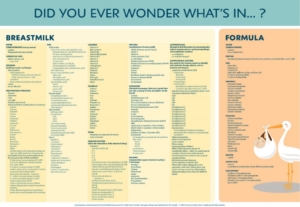 The second part seems to be the concern that this opens the door to questions pertaining to morality. Many breastfeeding advocates speak out against the practices of formula companies, many families who used to use formula speak out against their practices, yet to many formula apologists and current formula users, this is somehow wrong. The issue for these people seems to be that they feel implicated in the moral transgressions of the formula companies. As I previously mentioned, our choices do not exist in a vacuum, and the choice to use formula may not be seen as morally equivalent to using formula, not for the sake of the infant, but for the sake of things like environmental concerns and the welfare of individuals who are not privileged, either here or abroad.
The second part seems to be the concern that this opens the door to questions pertaining to morality. Many breastfeeding advocates speak out against the practices of formula companies, many families who used to use formula speak out against their practices, yet to many formula apologists and current formula users, this is somehow wrong. The issue for these people seems to be that they feel implicated in the moral transgressions of the formula companies. As I previously mentioned, our choices do not exist in a vacuum, and the choice to use formula may not be seen as morally equivalent to using formula, not for the sake of the infant, but for the sake of things like environmental concerns and the welfare of individuals who are not privileged, either here or abroad.
To acknowledge that a company is out to make a profit, and be damned who gets hurt, adds a moral layer to the use of formula that becomes difficult to shy away from and even more difficult to answer to. This is why we often see formula apologists separate the use of formula in developed versus developing nations. Yes, there are health differences, but morally? Is not the use of formula here in developed nations what allows for the companies to try and increase their profits more by peddling products to those they shouldn’t?
Just as formula apologists try to move away from or discount the formula industry practices in developing nations, so is it difficult to justify the same industry upping prices to increase a profit (for they all are making a very healthy profit; see here for Abbott Laboratories, makers of Similac, as an example) when it puts babies in their own backyard at risk. Ignoring this problem is much easier than tackling the very messy moral quandary of a product that can save lives and gives families choice while also taking away that choice and causing the death and illness of hundreds of thousands of babies worldwide. Can we say this is an equal choice?
Where do they go from here?
Just as the breastfeeding advocate who ignores her own privilege cannot help the situations of many who need her help, nor can the formula user or apologist help the many women who suffer when formula privilege is ignored. I know many people will have some choice words for me here, but I hope they will make it to the end as we’re really at the crux of the issue…
Put very plainly, women and men have the absolute right to use formula. This right, however, does not mean they should view their rights without consideration of the larger effects of their choice on others. Unlike breastfeeding, in which the changes need to be directly at larger societal structures to help remove the barriers, the key players in changing formula privilege are also those that offer it – the companies themselves. As such, formula users and apologists have a very unique role to play.
You see, I can rant and rave about the formula companies all I want. They won’t care because I don’t give them a dime. The people with the most power to change things for the better, both at home and overseas, are those who use the product. Acknowledging that one has the privilege to use a product that can cause much harm to others without such fear is the first step towards making changes that would increase the betterment of all families. To do this, people need to be able to acknowledge that their choice may not be as equal as they would like and that’s okay (just as breastfeeding advocates need to acknowledge that it is not as readily accessible for all women, something we are working towards).
For comparisons purpose, consider the chocolate and coffee industries. As an avid lover of both, I admit to having felt uncomfortable when first presented with the information of how morally bankrupt most of these businesses are. I didn’t like thinking that I was making choices with such negative repercussions for others, even though I couldn’t see them myself. It was easier to try and find criticisms of the criticisms laid out about the companies I was using and supporting. And this was for coffee and chocolate, not feeding my baby, so I can only imagine that the discomfort is much greater for those who truly feel they either have no choice or shouldn’t be criticized (implicitly or directly) for their choice.
Yet only through accepting what I was hearing and seeing that I had the power to change my habits and hopefully be one more voice speaking out against certain practices with my money could I help facilitate change. I now only buy fair trade coffee, I avoid Starbucks (which was actually a hard one as I love their coffee more than any local, fair trade shop, but I just stopped having coffee out unless it’s the brand I use at home), I’m working towards only getting fair trade chocolate (we’re about 75% there), and yet I know there’s still so much more I need to do. I’ve accepted that change is a process and I can focus on making the better of two choices when available and possible while also voicing my thoughts on practices when I cannot change my buying practices.
The key to change is to accept your privilege, accept that you have a voice to make change for the better, and then to start using it. You don’t have to give up your formula. You don’t have to feel like you’re a bad person. No one is saying that. Just be willing to look for how you can change, even if it is only writing the companies you use and telling them how you feel about making formula more affordable or ending the practice of promoting formula in places where it cannot be used safely.
Only when you own your privilege can you realize your power to change the world.
To read more on privilege and the politics that surround it (in breastfeeding and elsewhere), see:
[amazon_image id=”0072874899″ link=”true” target=”_blank” size=”medium” ]Privilege, Power, and Difference[/amazon_image] [amazon_image id=”B00BXGR9L8″ link=”true” target=”_blank” size=”medium” ]Power and Privilege: A Theory of Social Stratification[/amazon_image] [amazon_image id=”190517716X” link=”true” target=”_blank” size=”medium” ]The Politics of Breastfeeding: When Breasts are Bad for Business[/amazon_image] [amazon_image id=”1780665253″ link=”true” target=”_blank” size=”medium” ]Why the Politics of Breastfeeding Matter (Pinter & Martin Why It Matters)[/amazon_image]________________________________________
[1] Fein SB, Falci CD. Infant formula preparation, handling, and related practices in the United States. Journal of the American Dietetic Association 1999; 99: 1234-40. [2] Keating JP, Schears GJ, Dodge PR. Oral water intoxication in infants: an American epidemic. American Journal of Diseases in Childhood 1991; 145: 985-90.
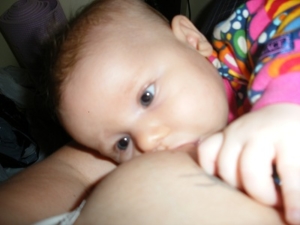

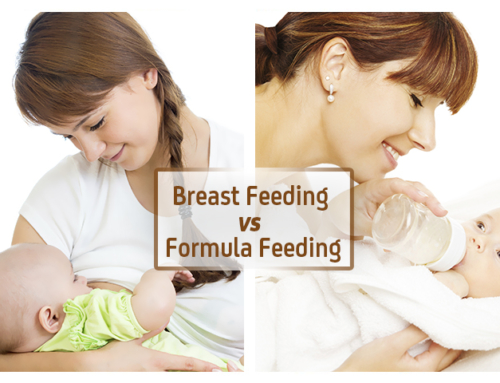

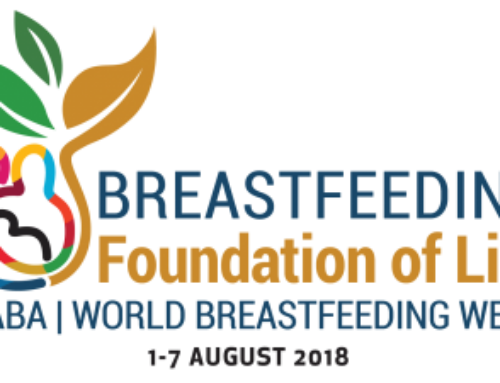
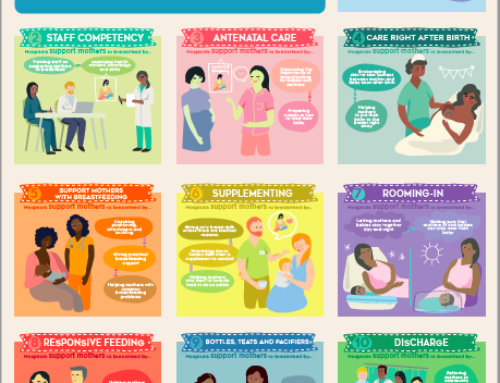
hi I was wondering if you have agony information on lip ties? Is it something you’ve researched?
Did you see the piece I did on lip and tongue ties recently?
I love that you use the word Failure so often in connection with a womans failure to breastfeed. I had serious post natal medical condition and produced no milk. After 3 days I made the heartbreaking decision to give in and formula feed my starving infant. Fail!! It gave me severe pnd. Fail!! And I get constantly reminded by self righteous people like yourself that I FAILED!! My formula fed daughter is healthy and intellegent and above average height, as am I, I was also formula fed. So jolly good for you. I am sure you are such a better mother and a better person for succeeding where lesser mortals failed. Now get over yourself. And I wish my self righteous mummy friends would stop posting this shit to their Facebook feeds to remind me that I failed.
I think you may need to evaluate your relationship with the word “fail”. I have failed at many, many things – both in and out of parenting – yet I see it as room for reflection and growth. Failing in and of itself does not hold any inherent judgment of you (and neither do I) nor does it discuss the reasons behind the failure, but if you set out to breastfeed and didn’t, you failed at it. In your case, by your description, it was due to circumstances entirely out of your control. That doesn’t change the outcome though and thus the use of “failed”.
(As an aside/example, in Japan, children have to speak at the end of every year to parents, teachers, and peers about their failures on the year – what they failed to achieve – and how they might change things the following year. Failure there isn’t negative, it’s part of the learning process about ourselves and what is around us. I would hope we could live in a society in which we all could see failure in such a light.)
[…] milk). Oddly, when he discusses the safety of drinking water, he ignores research on how not all Western families have access to safe drinking water, but also that drinking water seems to be one of the primary sources of these PFASs for individuals […]